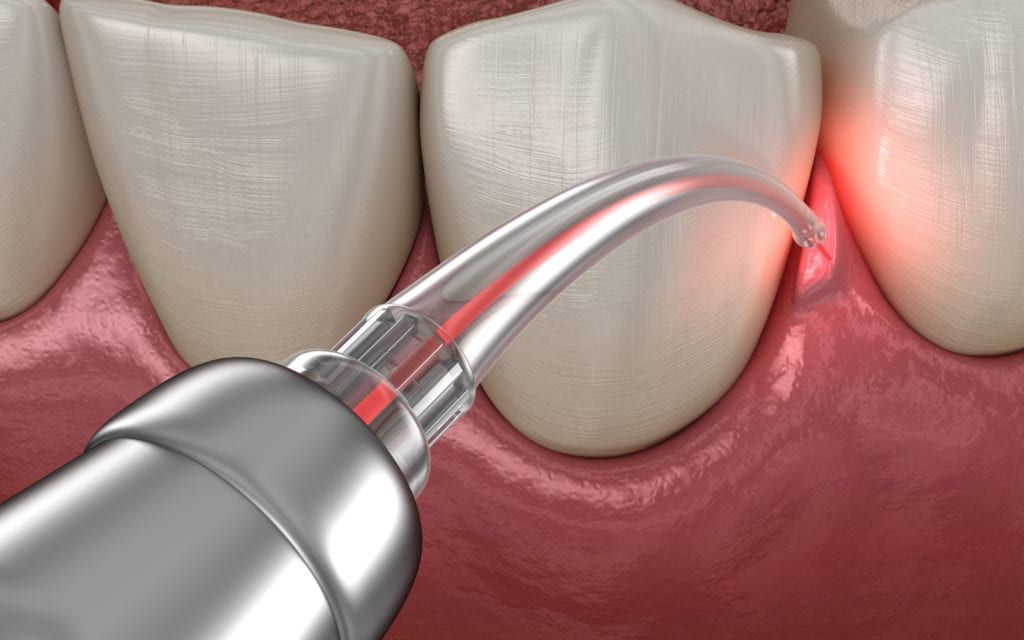Dentistry has been going through numerous changes to the types of tools and techniques used to improve patients’ care everywhere. As dentists regularly update their equipment, one of the latest to come out of the wood-works is, you guessed it, lasers. Bright beams of heated light directed into a tiny pinpoint, these lasers have come from dentistry’s largest companies right to your practice’s door. It’s a fun new toy for dental care for dentists, but for patients, it seems efficient, but does it work? This question occurs often enough that we, as dentists, are glad to answer them by giving you a full insight into the wonder of the sci-fi inducing machines.
What are Lasers?
Like the imaginings of movies such as Star Wars, lasers in medical use work almost the same way. Lasers are devices that use a specific wavelength of monochromatic light to focus down into a narrow beam. These lasers vaporize the tissues by friction, and the electrons absorb energy from an electrical current to emit powerful energy through that wavelength. Lasers are often used in making CDs, metal cutting systems, measuring systems, and more. Medically, they’re often used in eye surgery and cosmetic surgery and are usually found in dermatology and medical spas to treat skin conditions.
How to Lasers Apply to Dentistry
Dentistry has only recently taken on this trend, as lasers can treat various mouth conditions that generally would be treated through surgical means. They present a less invasive option for patients unable to have conventional treatment methods. You’ll often find a version of lasers that uses soft light, a form of laser that gently tackles damaged tissues, to resolve complex dental problems. Lasers have the potential to treat various conditions, including:
- Remove Excess Gums: Patients who suffered from gum disease, “gummy” gums, and periodontal disease can benefit from lasers. Due to their accuracy, the lasers allow for the gums to be reshaped and remove damaged, decaying gums from the mouth.
- Remove Tooth Decay: Lasers also can remove tooth decay from individual teeth without taking up too much damage and can help harden fillings meant to protect the teeth from future corrosion.
- Treat Cancer Cells: Although not many studies have confirmed this, it is also reported to help remove potentially cancerous cell clusters from the mouth.
To learn more about lasers’ power and how they can apply in dentistry, visit Dr. Ross Quartano at Magnolia Dental, located in Covington, LA, for more information.


